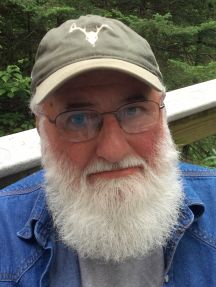If all laws were simple, we wouldn’t need lawyers.
Nothing wrong with that. Everyone displaced from the legal profession by improved ordinances (example: don’t be such an ass, you putz) could easily find employment in the restaurant industry, where there’s a severe shortage of dishwashers.
Unfortunately, lots of legal issues aren’t simple, which means the statutes regulating them end up being so convoluted they can only be interpreted by brilliant jurists. Which is an oxymoron (see Walker, Lance, Maine U.S. District Court judge).
I mention the complexities of the legal system not to disparage the learned men and women who wear those silly black robes (although that’s certainly a side benefit), but to point out a major problem facing the grassroots citizens group attempting to block Central Maine Power Co.’s plan to build a 145-mile transmission line through western Maine to bring Canadian hydropower to Massachusetts.
This organization is called Say NO to NECEC. NECEC is CMP’s acronym for the power line. The company claims it stands for New England Clean Energy Connect, but it’s really Not Earning Cash Embracing Conservation.
Say NO is considering launching a petition drive to force a referendum next year on whether NECEC can be built. It’s a huge undertaking for an outfit with a loose organizational structure and no money. And it’s made even more difficult because Say NO will have to come up with a ballot question that meets legal muster.
In the simplified world imagined above, that question would read something like, “Should CMP be allowed to rampage through Maine’s forests so it can earn $200 million a year selling electricity to clueless flatlanders?”
For some ridiculous reason that nice, clear wording doesn’t meet the exacting standards established by generations of attorneys seeking to keep themselves and their offspring employed in perpetuity. That means Say NO will have to hire its own lawyers to carefully craft a referendum question of not less than 3,000 words, at least two dozen of which must contain 10 or more syllables. Such an effort will cost upwards of $100,000, which is roughly $99,814.73 more than Say NO has on hand.
There is a second, wealthier group opposing the power line called Stop the Corridor. The source of its money isn’t known, and repeating rumors that it oozes out of natural gas and oil interests that stand to lose business if CMP floods the market with cheaper Canadian power would be irresponsible speculation.
Call me an irresponsible speculator.
Stop the Corridor could easily pay for the legal work required to draft a proposed law and referendum question, as well as hire platoons of signature gatherers to collect more than 63,000 names of registered voters before a January deadline. But after that, the whole campaign would boil down to whether you wanted to back the position of CMP (motto: Evil – But Dishonest) or Stop the Corridor (motto: Sleazy – But Probably Evil, Too). Not looking forward to making that choice.
One possibility for avoiding that is for Say NO to appropriate the language of a bill that passed the Legislature a few weeks ago, but was vetoed by Democratic Gov. Janet (Power to the People – Of Massachusetts) Mills. It would require CMP to get approval from most municipalities the corridor passes through before it could be built. Many of those towns have already rejected the idea, so the measure would effectively kill the project.
That seems simple enough. But it probably isn’t. Because:
Lawyers.
Send questions/comments to the editors.


